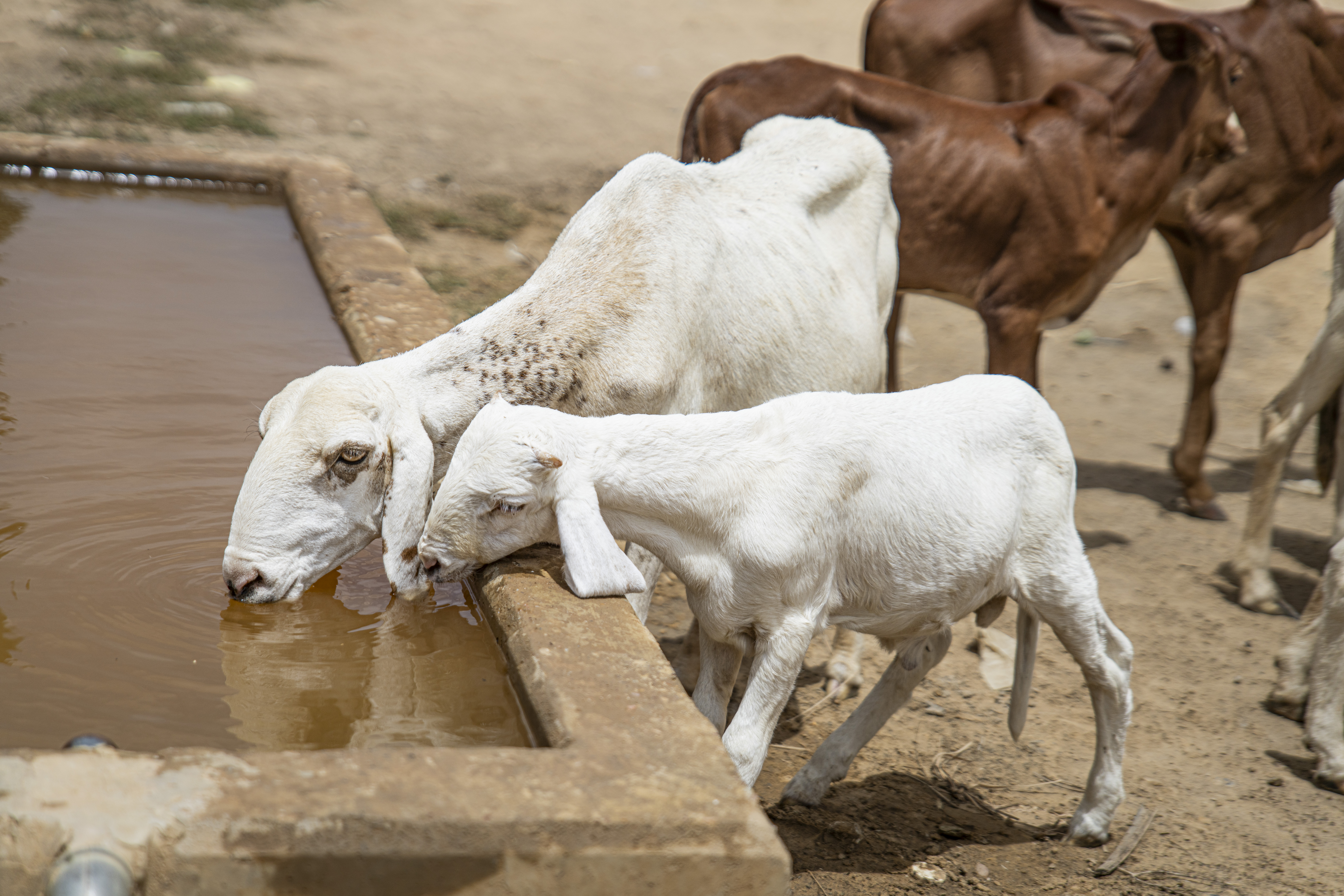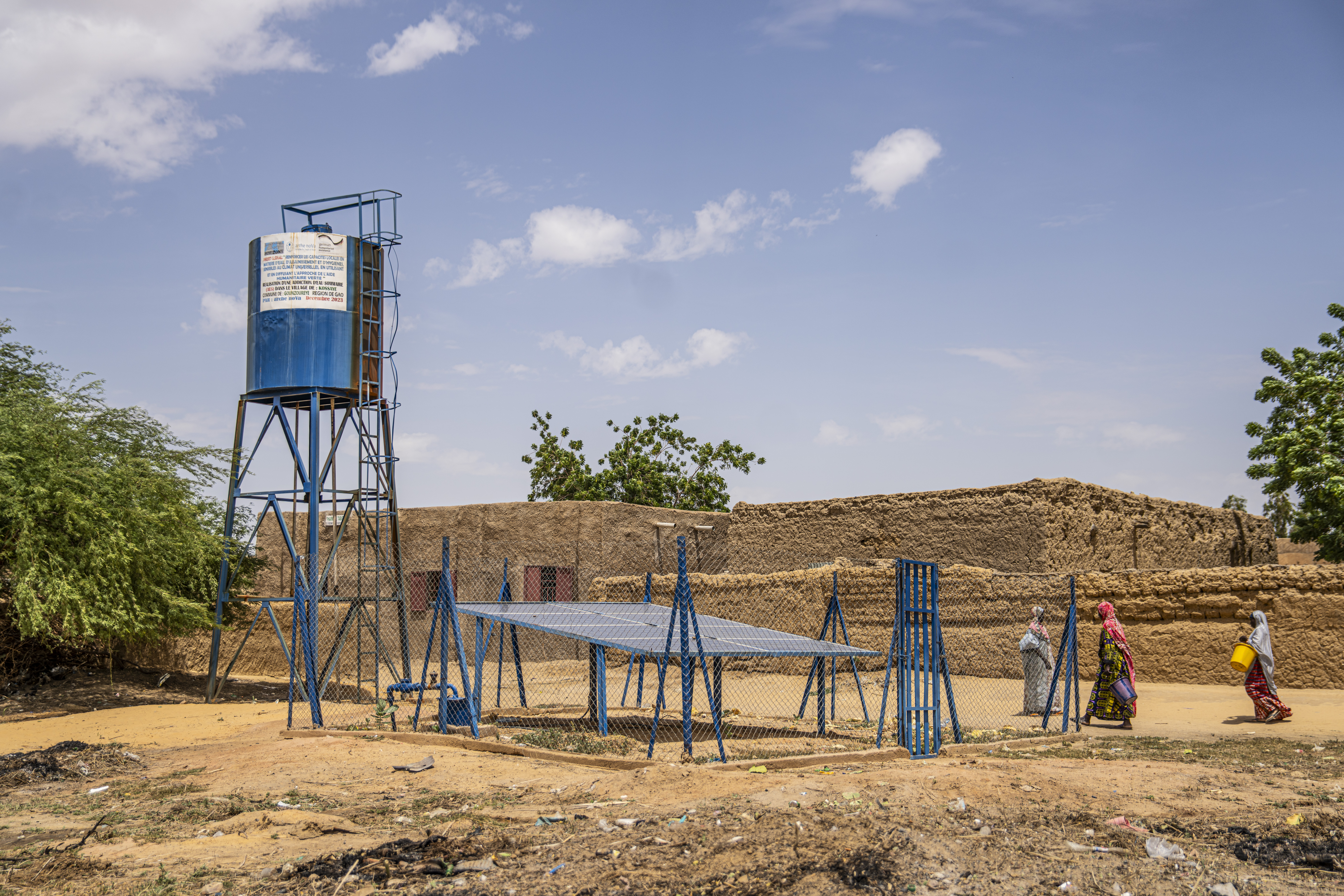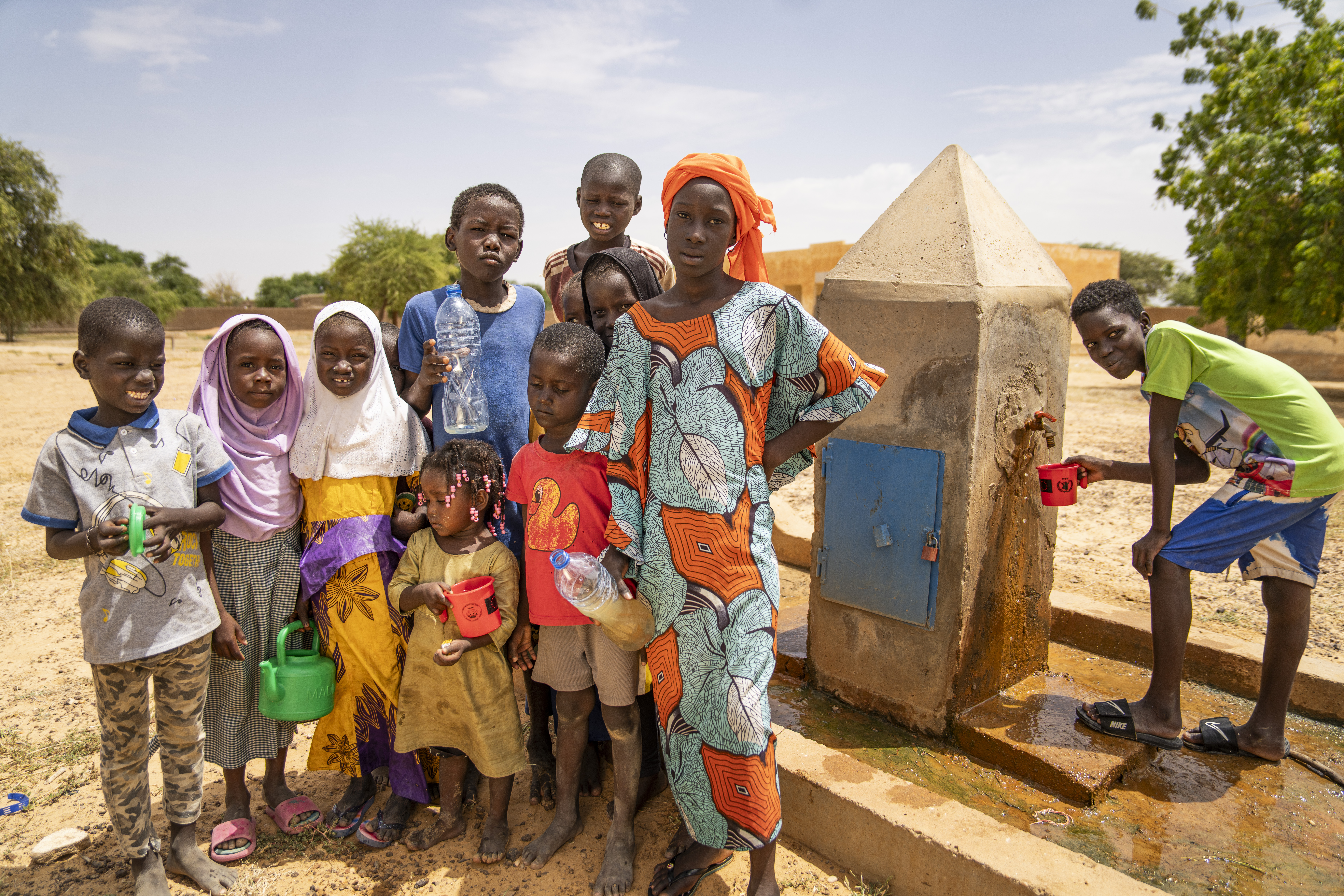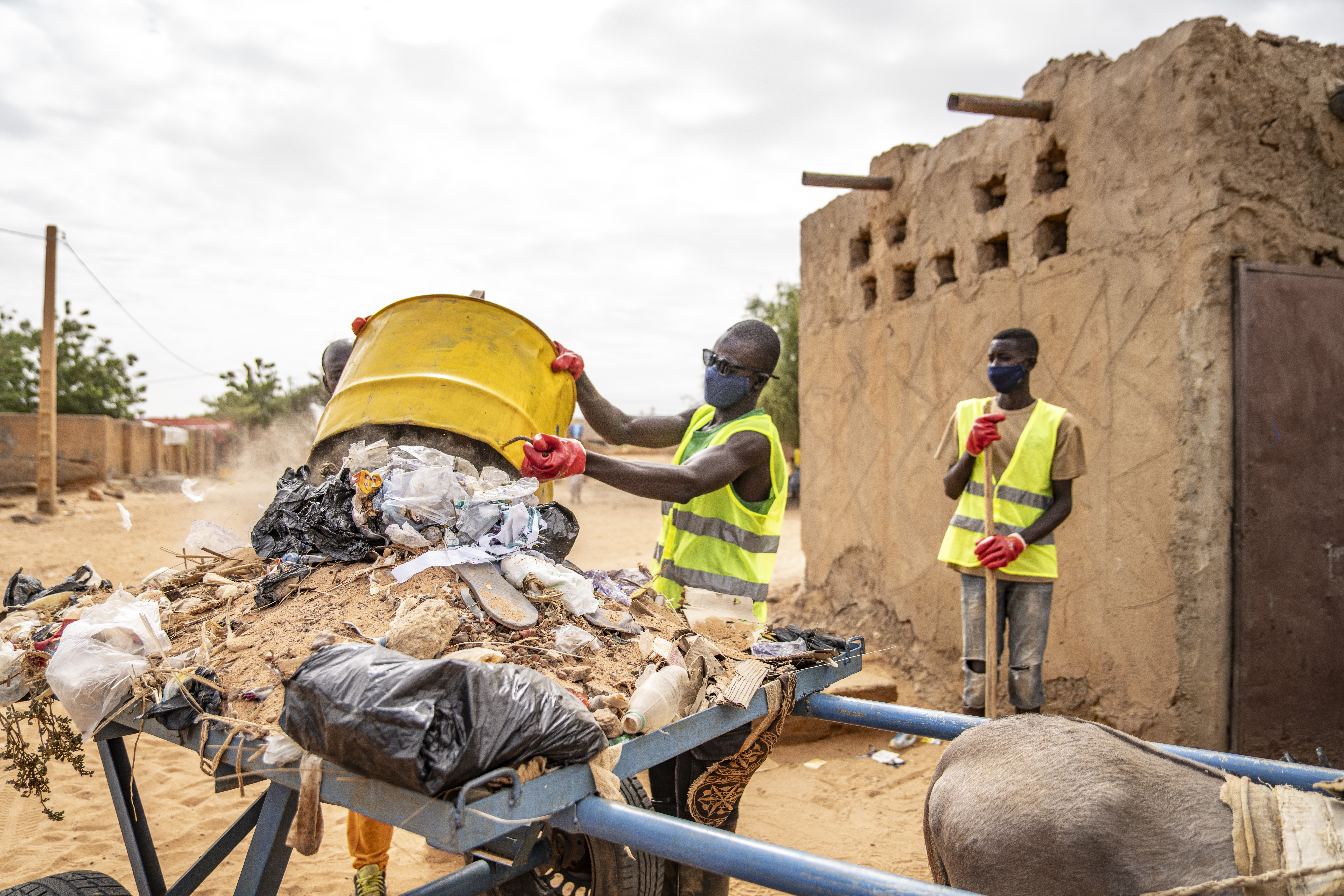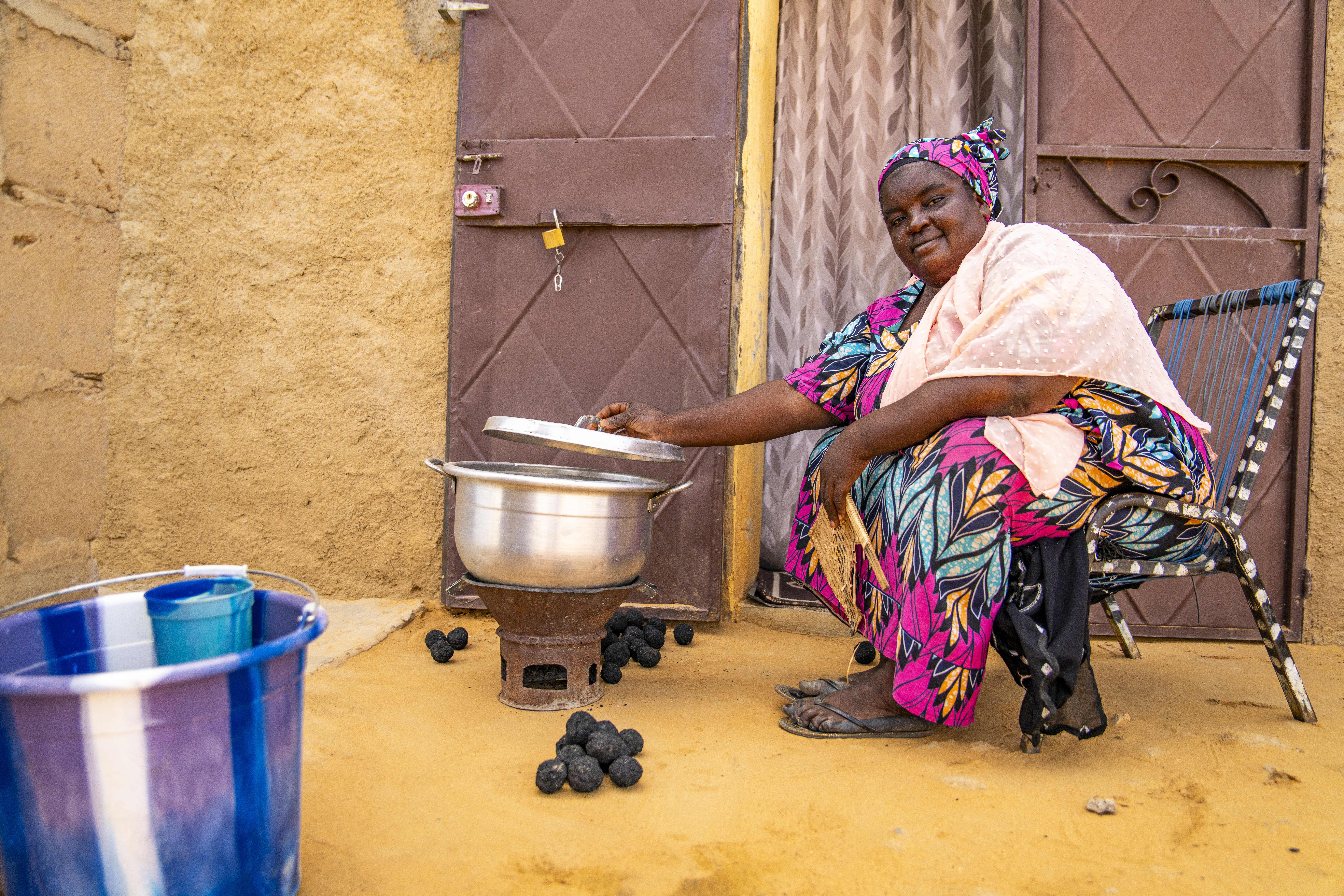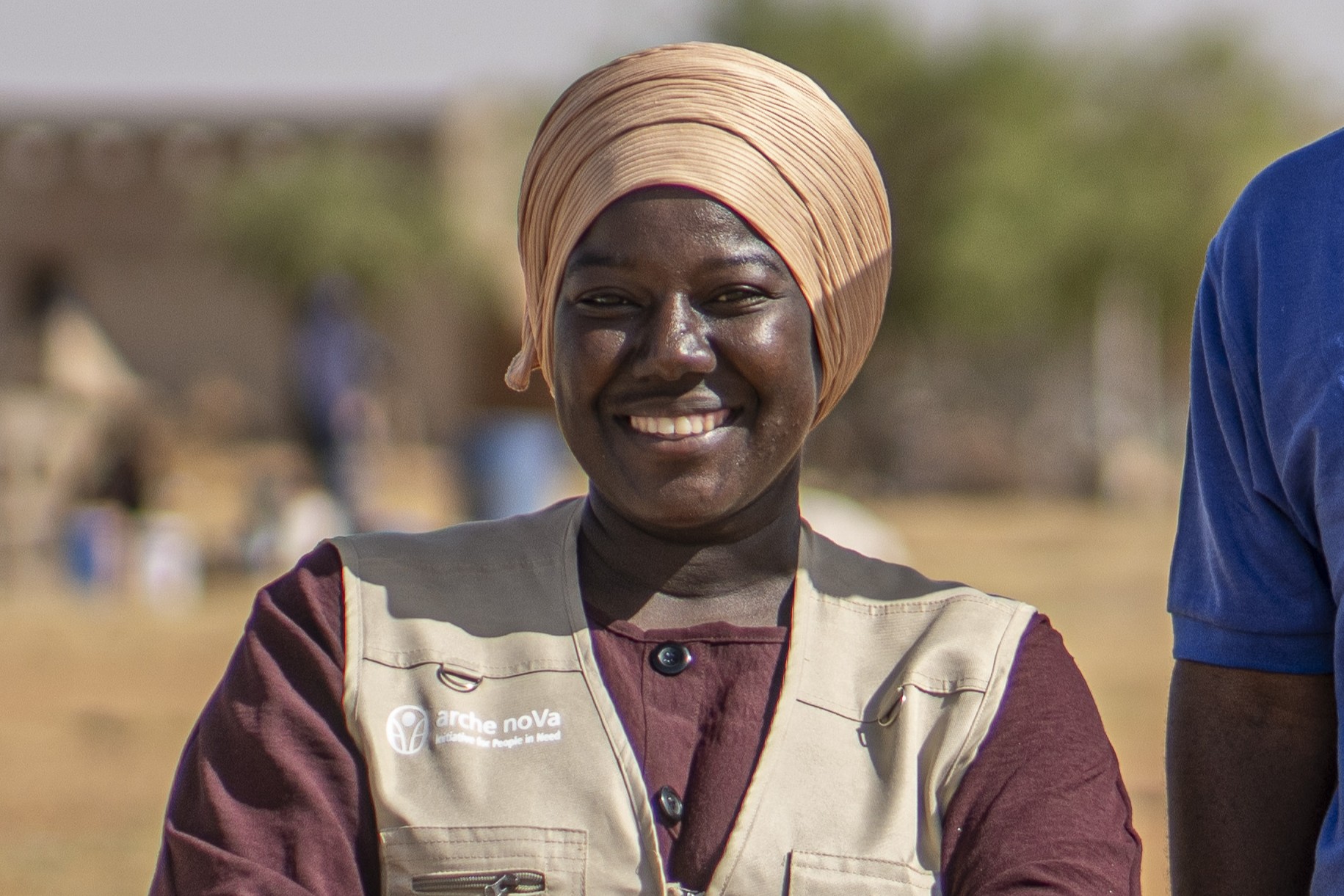Araoudatou Aboubakar is 40 years old and lives in Bagoundié, a small town in northeastern Mali, on the edge of the Sahara. Here, where drought dominates life, she has performed a small miracle: under her care, fresh watermelons are ripening.
À Raoudatou is chairwoman of the local women's initiative that looks after the community garden in Bagoundié. This year, the 30 women of different ages harvested more than a ton of vegetables, including onions, tomatoes, eggplants, okra, and peppers. The women use the produce to feed their families – and still have enough left over to sell at the local market. In this way, they make an important contribution to their families' income.
Many of the families in Bagoundié live in a refugee camp on the outskirts of town. They fled from other villages in the region because they were attacked. They are trying to set up a new home here under the most basic conditions. Together with its local partner organization Nouveaux Horizons, arche nova is supporting them by distributing household items, mats, tents, blankets, and stoves.
Water as a game changer
The fact that there is a water supply point in the camp is a great relief for Araoudatou and the other women. With the support of arche nova, the community garden has even been equipped with its own irrigation system, which ensures a stable supply of water for the plants – and thus a rich harvest. Suitable tools and natural fertilizer also help the women's initiative to keep their plants healthy.
Many other people benefit from the water supply point – as do animals, because there is also a watering place at the supply point that is regularly visited by livestock farmers.
The water for humans and animals comes from groundwater wells. The pump that transports the water to the large tank is powered by solar technology – in this region, this is not only the most reliable but also the most sustainable way of supplying electricity.
With 76 Euro you can ensure...
...that a family of four gains access to safe drinking water from a newly drilled or expanded well.
Sustainability and a considerate approach to climate and the environment play an important role in arche nova's projects in Mali. In Bagoundié, for example, we encouraged the establishment of a waste committee that takes care of proper waste disposal in the village and also integrates new recycling options into everyday life. For example, organic waste is used to produce charcoal. 39-year-old Balkissa Yacouba Touré uses it for cooking and is convinced of its quality. “It is much more efficient than charcoal. It is also environmentally friendly, easily available, and cheaper,” she says.
More than water: arche nova in Mali
arche nova is pursuing this holistic approach to green humanitarian aid in a total of 26 locations in Mali. We are currently reaching almost 155,000 people in Mali. We...
- build and renovate water points, relying on solar energy.
- equip community gardens with efficient irrigation systems.
- build public sanitation facilities and emergency latrines in communities where many internally displaced persons seek shelter.
- combat hunger in the region by distributing food and setting up school canteens.
- distribute household items and building materials for temporary shelters to people who have had to flee their homes.
- provide dignity kits to ensure that women and girls can take care of themselves with dignity during their menstruation.
- support livestock breeding and vegetable cultivation with relief supplies (seeds, animals, tools) and training.
- work with the local population to set up initiatives in various areas of life (agriculture, water and sanitation, waste management, food processing, hygiene practices).
- use early warning systems, training, and technical equipment to improve communities' protection mechanisms against extreme weather events.
- train young people in conflict prevention and nonviolent conflict resolution.


